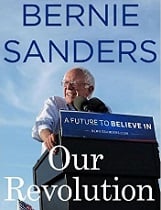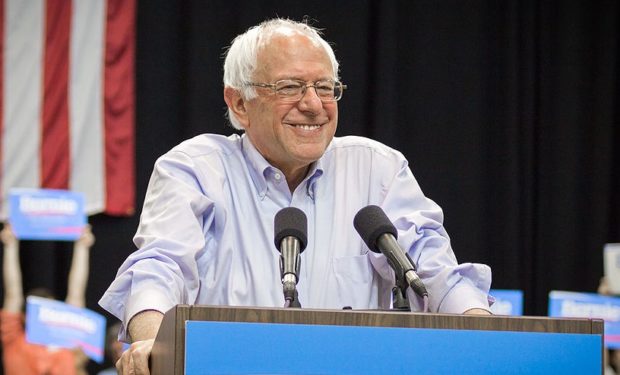Sen. Bernie Sanders was the first maverick iconoclast to upend Hillary Clinton‘s presidential plans. Donald Trump was really the second act. Sanders’ populist message commanded much of the political narrative in 2016, as his anti-corporate rhetoric rallied the disenfranchised and the plain fed-up just the way Trump’s message was exploiting the same feelings on the other side, albeit with a measure of racism thrown in on Trump’s side. Both candidates, Sanders and Trump, exposed Hillary Clinton’s flank to powerful populist fantasies about enfeebled corporations (Sanders) and emaciated government (Trump), neither of which Clinton espoused.
 [LEFT: Bernie Sanders’ Our Revolution, a bestseller at Amazon]
[LEFT: Bernie Sanders’ Our Revolution, a bestseller at Amazon]
Sanders emerged from his Democratic nomination defeat with his reputation intact: he remains known as an undaunted, untainted speak-truth-to-power guy. And Sanders’ strong support system was no flash in the pan for the election cycle either — Sanders’ support remains strong. He regularly hosts podcasts and Facebook Live sessions that go viral in popularity. And Sanders’ book tour events match Trump rallies for crowd energy and passion (though again, without the racism). But in standing against corporate America, and especially against corporate-owned mainstream media which he views as having an inherent conflict with the needs of the people, Sanders sometimes sounds like Trump, a man he thinks is poisonous. Trump says “fake news.” Sanders says something more like self-serving news. Or for-profit news. Both are dangerous to democracy.
But Sanders knows the differences between his stance and Trump’s rely on nuances that can be lost on the casual listener. Sanders recently told New York Magazine:
[Am I concerned] that people might see me and Trump saying the same thing? Yes, I am.
